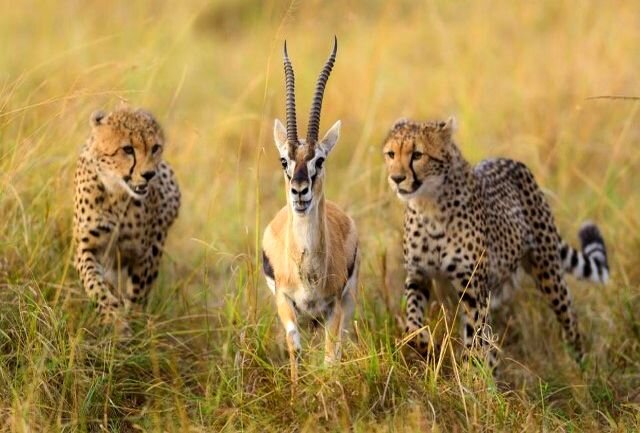COVID-19: economic pressure plundering nature

TEHRAN – Rising economic pressures and declining public revenues since the onset of the coronavirus outbreak have caused profiteers and poachers to once again attack natural resources and plunder the environment to make up for their income shortcomings.
Four carcasses of mouflon which were found in Golestan province in late November from 6 poachers show that the isolation of nature due to the pandemic is not a benefit for wildlife and cannot prevent greedy poachers from laying their hands on natural resources.
Mahmoud Shakiba, head of the provincial department of environment (DOE), said that despite the presence of DOE forces around the clock in the habitats of the province, poachers still take up illegal hunting.
Statistics of recent discoveries and arrests of poachers show that the link between the increase in poaching and the prevalence of coronavirus needs further investigation, he highlighted.
Using people's participation to help preserve wildlife is one way to protect nature from profiteers and poachers, he noted.
For more than half a century, the Hyrcanian forests in northern Iran have been plundered by humans, and its plant and animal species, such as the Caspian tiger or the ancient English yew, are extinct or in danger of extinction. The restrictions that reduced the people’s entry into natural areas, gave unique tranquility to the animal and plant species, the result of which can increase the species’ reproduction and even save some endangered animals from extinction, he stated.
“Since the early days of the outbreak, when Golestan was still involved in the pandemic lockdowns, the mating season of common pheasant began in the forested areas of the province with minimal encroachment and the presence of people, which also facilitated the wild goats’ delivery in the forested areas and minimized wildlife casualties.
In the aquaculture sector, the Caspian Sea and Gorgan Bay reserves have been given the opportunity to rehabilitate, and the spawning season of bony fish and their migration to rivers ended with the least number of attacks by illegal fishermen,” he explained.
He went on to note that the same happened for the plant species and seedlings.
Illegal hunting
Issa Kalantari, the DOE chief, said that economic pressures imposed on the people by the pandemic and restrictions are a reason for increased poaching so that they go to deserts and nature to hunt for a living, implying that the conflicts between poachers and rangers have been increased.
Coronavirus seemed to prosper nature
Although the outbreak of coronavirus caused great damage to various sectors and with the closure of economic and educational centers, tourism and traffic ban, disrupted the movement of the country's economic cycle; the disease, willingly or unwillingly, gave nature an opportunity to rehabilitate after years.
For more than half a century, the Hyrcanian forests in northern Iran have been plundered by humans, and its plant and animal species, such as the Caspian tiger or the ancient English yew, are extinct or in danger of extinction.
The declining human traffic in nature had a great impact on the improvement of wildlife, while the continuation of this process requires the implementation of cultural plans and more familiarity of people with the impact of nature on their lives. The implementation of the social distancing plan in the wake of the widespread outbreak could play an important and key role in promoting sustainability, health, and improving the quality and quantity of natural habitats.
The declining human traffic in nature had a great impact on the improvement of wildlife, while the continuation of this process requires the implementation of cultural plans and more familiarity of people with the impact of nature on their lives.
Human absence
Pointing out that protecting the planet is important to humans, Mohammad Darvish, a member of the National Security Council for the environment said that the pandemic has caused the earth to breathe deeply, and now the wise man is faced with the question that “why, when human activity as a member of the ecosystem decreases, not only does nothing happen, but the condition of nature improves.”
Think of bees being removed from nature. In this case, the integrity of the Earth's environmental property, the reproduction of many species and humans themselves will be damaged, or if brown bears are removed, soil fertility will decrease, or if wild boars are removed, water permeability will decrease and floods will increase, he explained.
Therefore, there have been wise in the creation of all plant and animal species or even insects, and have contributed to the earth's resilience, he emphasized.
Why has it now happened that man, who considers himself the best of creatures, that must be more responsible, has behaved in such a way that his absence is in favor of nature and the earth?
I hope that such happening gives up a lesson to change our development programs in favor of nature and try to understand the laws of nature, instead of spending budgets on warfare, larger and more horrific weapons, he noted, implying that environmental research and health is now more essential as well as improvement of the education system so that in the post-corona crisis world we can appear wiser, more knowledgeable, and more responsible.
FB/MG
